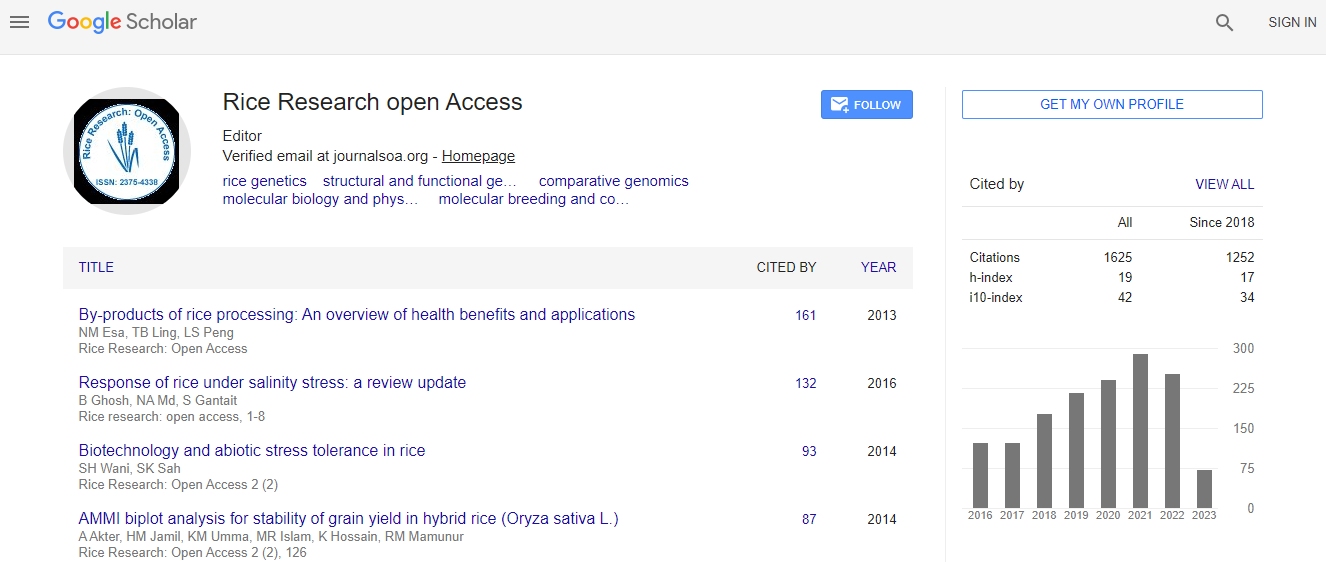Research Article
Evaluation of Factors Impacting Agrobacterium-Mediated Indica Rice Transformation of IR58025B - a Public Maintainer Line
| Huaping Gui, Xia Li, Yubo Liu and Xianggan Li* | |
| Syngenta Biotechnology China Co, Ltd 25 Life Science Park Road, Changping District, Beijing 102206, P.R. China | |
| *Corresponding Author : | Xianggan Li Syngenta Biotechnology China Co Ltd 25 Life Science Park Road, Changping District Beijing 102206. P. R. China Tel: +86 1080735909 E-mail: Xianggan.Li@syngenta.com |
| Received: February 01, 2016 Accepted: February 15, 2016 Published: February 20, 2016 | |
| Citation: Gui H, Li X, Liu Y, Li X (2016) Evaluation of Factors Impacting Agrobacterium-mediated Indica Rice Transformation of IR58025B - a Public Maintainer Line. J Rice Res 4:163. doi:10.4172/2375-4338.1000163 | |
| Copyright: © 2016 Gui H, et al. This is an open-access article distributed under the terms of the Creative Commons Attribution License, which permits unrestricted use, distribution, and reproduction in any medium, provided the original author and source are credited. | |
Abstract
n this study, we report our efforts to develop an efficient Agrobacterium-mediated transformation protocol for the transformation of Indica rice IR58025B with mannose as a selection agent. Various factors, such as basal medium, culture temperature, strains for infection, air-drying duration of calli after infection, and salt concentration of coculture medium, were systematically optimized so that the highest transformation frequency (TF) reached to 74%. About 94% of mature embryos were induced to generate calli of high quality on modified NB medium. Both callus quantity and quality were improved when callus was induced from endosperm-free embryos in comparison to intact mature seeds. Higher temperature (32°C) showed improvements when compared to lower temperatures at (25°C and 28°C) for both callus induction and transformation. Agrobacterium strains of EHA105 produced the best TF in comparison with EHA101, LBA4404 and AGL1. However, LBA4404 produced the highest single copy frequency. Prior to co-cultivation, air-drying of inoculated calli was performed in a laminar flow hood for 4-7 hours and produced a higher TF. Lower salt concentration for co-cultivation medium enhanced both DNA delivery and TF.

 Spanish
Spanish  Chinese
Chinese  Russian
Russian  German
German  French
French  Japanese
Japanese  Portuguese
Portuguese  Hindi
Hindi 
